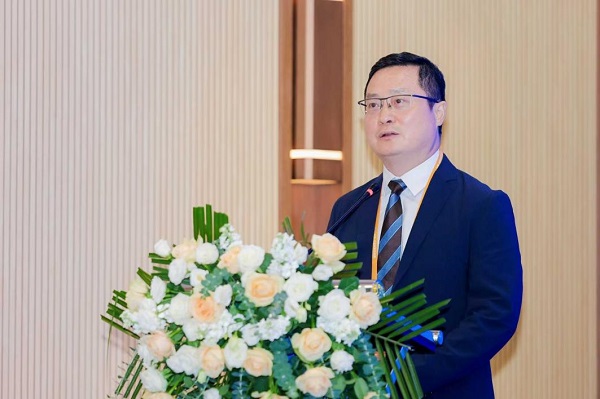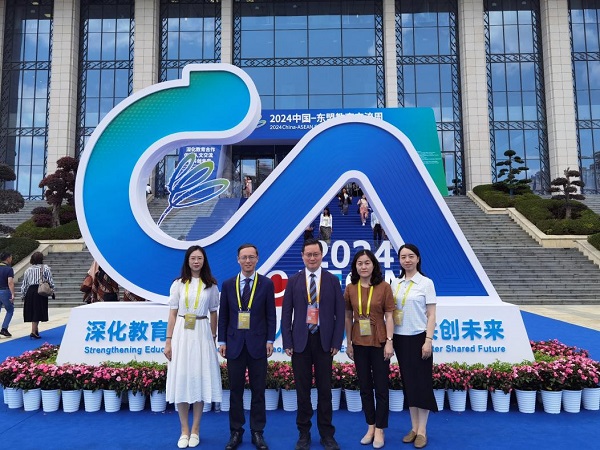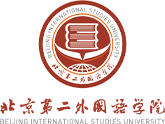
The 2024 China-ASEAN Education Cooperation Week, co-hosted by the Ministry of Foreign Affairs, the Ministry of Education, and the Guizhou Provincial People's Government, was recently held in Guiyang, Guizhou province.
The "Non-General Language Talent Cultivation and China-ASEAN Industry-Education Integration Conference", as part of the event, took place on Aug 21. It featured a speech by Zheng Chengjun, a member of the Standing Committee of the CPC Beijing International Studies University (BISU) Committee and vice-president of the university.

Zheng gives a speech at the conference.
In his speech, Zheng emphasized the close geographical and cultural ties between China and ASEAN, saying ASEAN has been China's largest trading partner for four consecutive years, and educators should contribute to the cultural exchanges between the two sides.
Zheng proposed the establishment of a "China-ASEAN Language and Culture Institute Alliance", on behalf of the Beijing Education Association for International Exchange. He suggested that the alliance focus on societal needs, strengthen exchanges and cooperation among Chinese and ASEAN language and culture institutions, continuously improve the talent cultivation model, deepen industry-education integration, and improve the alignment between supply and demand of minority language-speaking talents.
Wang Hui, deputy secretary-general of the Secretariat of the Organizing Committee of ASEAN-China Education Exchange Week, expressed the hope for China and ASEAN countries to jointly advance the comprehensive strategic partnership and take new steps toward building a closer China-ASEAN community with a shared future.
An Yan, deputy secretary-general of the China Education Association for International Exchange, said that the association is willing to leverage its advantages as a national social organization and build more platforms for China-ASEAN language and culture exchange and cooperation.
Liu Xiao, deputy director of the Education, Culture, and Tourism Division of the ASEAN-China Center, emphasized that with the rapid development of globalization and digitalization, enhancing language service capabilities is not only important in strengthening cultural exchanges but also crucial for supporting ASEAN-China education and industrial cooperation.
Dong Chuan, director of the International Cooperation and Exchange Office of the Beijing Municipal Education Commission, pointed out that strengthening language exchanges can enhance mutual understanding, reduce misunderstandings and conflicts, and promote international cooperation and exchanges, ultimately contributing to building a community with a shared future for mankind.
Huang Kan, president of the Beijing Education Association for International Exchange, delivered a keynote report. He analyzed current trends in the internationalization of education and discussed the role of minority language teaching in promoting international capacity cooperation.
John Arnold Siena, deputy director for program and development of the Southeast Asian Ministers of Education Organization (SEAMEO), also presented a report on "The Trend of ASEAN Students Studying in China", discussing the promotion of language education through student exchanges, and the resulting challenges, opportunities, and future development directions.

BISU delegates take a group photo.

Links
